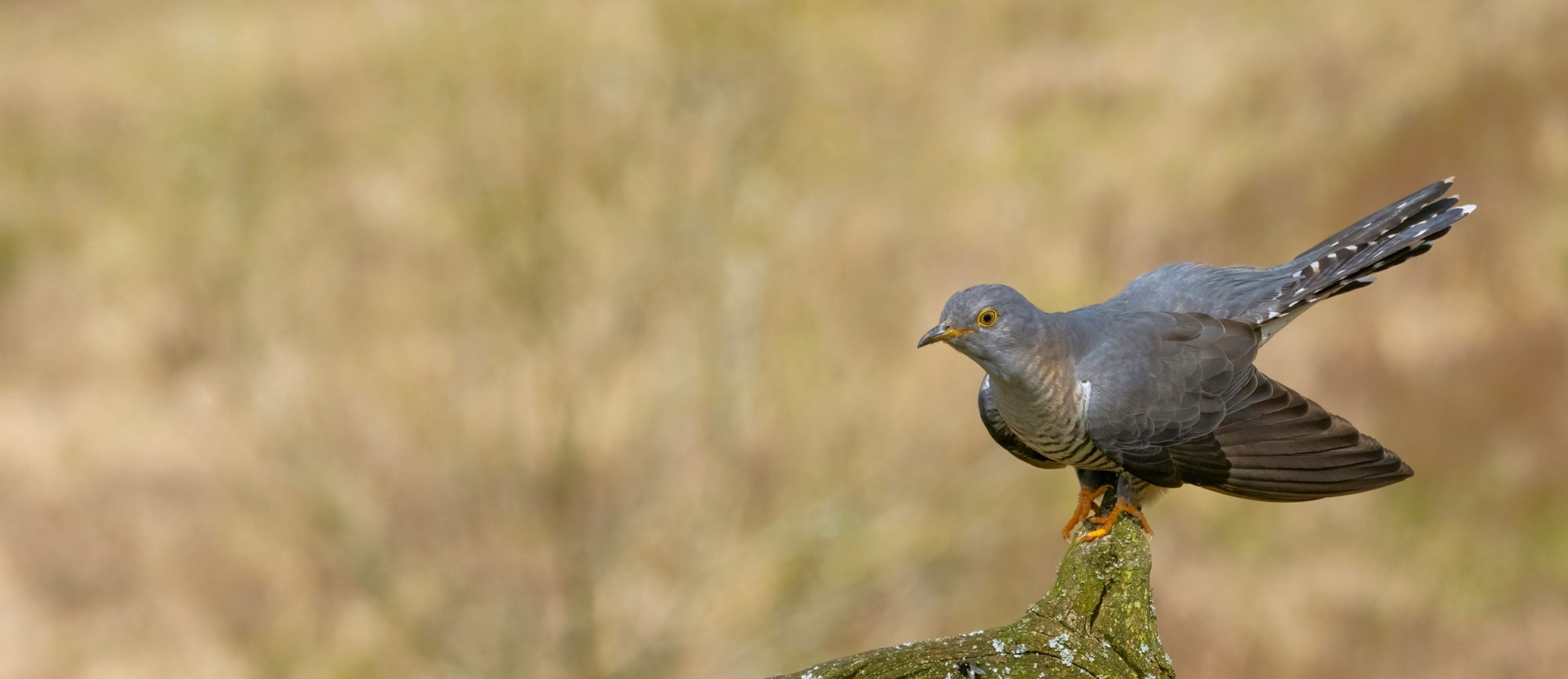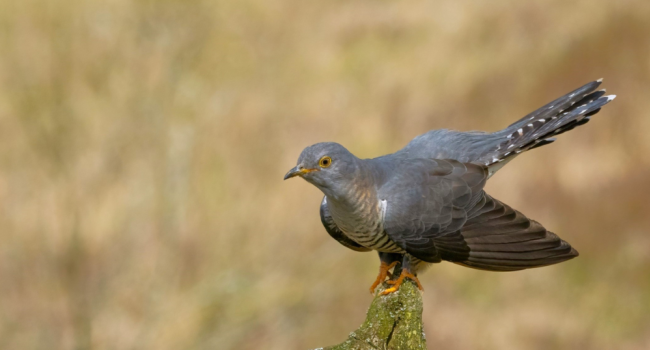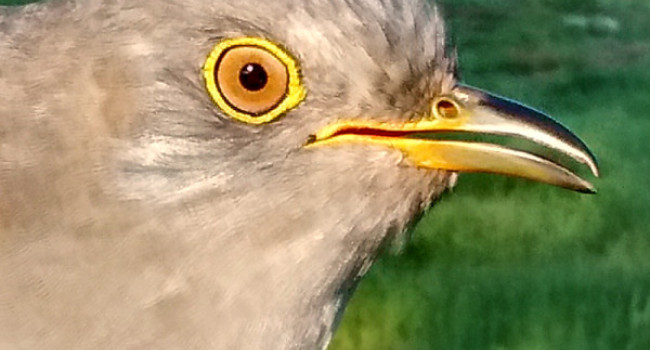On 1 April, Lyster remained in the northern part of Digya NP in Ghana. He has been in this area for nearly four weeks now and, although he left the UK later than the other Cuckoos in August, we might expect him to head north soon.
Updates from our Cuckoos
Read the latest updates from our Cuckoos on their epic migration between the UK and tropical Africa, or track their movements in real-time on our Cuckoo migration map.
- If you enjoy these updates, please consider sponsoring a Cuckoo. Sponsors receive special updates about their chosen Cuckoo in the Cuckoo e-newsletter.
Northward movements on the cards?
Will Kasper follow Martin?
We last received a location for Kasper on 26 March. As he was the first of the Cuckoos to head into West Africa at the beginning of his journey, we might expect him to follow Martin across the Sahara in the next few days.
Martin's mammoth move!
Having received no locations for Martin since 18 March, we suspected we were witnessing the now-familiar pattern of a tag failing to charge for some time prior to the bird’s departure and were anticipating it bursting into life when he moved on.
During the afternoon of 1 April, we duly received a series of poorly-resolved locations that, taken together, showed that Martin was making his northwards desert crossing. During the several hours of transmissions as he moved from Mali into Algeria, he was moving over the earth’s surface at average speeds in excess of 100km (62 mph) per hour!
It is notable that Martin is the only one of our tagged Cuckoo who is more than two years old; as older birds are generally expected to arrive back before younger birds.
Sadly, the transmission period finished before he had completed his desert crossing and we won't receive further signals for a couple of days but we can't wait to see what he does next!
Lyster still in Ghana
Lyster hasn't moved any further, a transmission on the 24 March shows and he is now the most easterly Cuckoo and the only one remaining in Ghana. Perhaps we will see further movements from him soon?
Chris stationary
We received a transmission from Chris' tag in the early hours of yesterday morning which showed no further movement since he hopped over the border almost two weeks ago. We expect all four Cuckoos will be likely to attempt to cross the Sahara soon so watch this space!
No movement from Martin
We haven't received any further transmissions since the 18 March for Martin. The weather there is currently warm and wet with thunderstorms forecast for tonight and more rain and cloud tomorrow. The weather is forecast to change at the end of the week. Could the onset of sunshine and light winds from the south provide ideal conditions for his next move?
No change from Kasper
Kasper's tag transmitted yesterday and showed that he has remained at his position within Ivory Coast. There have been no further movements from the other Cuckoos so he remains the most westerly - for now at least!
Lyster heads into Digya National Park
Sometime between 17 March and the early hours of this morning (22 March) Lyster moved 20km (12 miles) SSW. This took him over an arm of the Volta and into Digya National Park, a short movement took place at the same time as Kasper’s jump to Côte d’Ivoire. Both of these Cuckoos moved towards higher rainfall areas, albeit in different directions and for different distances. Lyster’s shorter movement was directly towards where more heavily wooded habitat could be found.
Kasper the most westerly Cuckoo
Sometime between the evening of 18 March and the early hours of 21 March, Kasper has moved 500km (304 miles) almost exactly due west into Ivory Coast. He passed Chris and Martin on his way and is now the most westerly Cuckoo. He is 21km (13.5 miles) south-east of the city of Bouaké, the second largest city in Ivory Coast. He is now just 140km (87 miles) and 185km (115 miles) west of Martin and Chris respectively.
Clement gone but not forgotten
We regret to announce the death of Clement the Cuckoo, last heard from in Cameroon on 25 February. Temperature data transmitted at the time via satellite suggested that he was no longer alive and we must now assume that he will not be returning to Norfolk for the summer. The other four Cuckoos are in The Ivory Coast and Ghana.
It is amazingly fortunate that all five Cuckoos survived as long as they did. Interestingly, the only information we had about a ringed Cuckoo in Africa, prior to this winter, was of a bird of exactly the same age as Clement that was killed by man (presumably for the pot) in Lembe in Cameroon (just 100 miles due north of Clement's last position) on 30th January 1930. Read more about how Clement has helped to advance our knowledge of Cuckoo migration.





Share this page